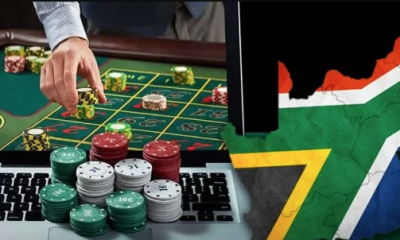Business
SASSA and Gambling Addiction: How Unemployment Fuels South Africa’s Hidden Crisis

When survival money fuels addiction
South Africa’s social grant system is meant to keep the poorest afloat. Yet new figures show a troubling reality: a significant share of those relying on grants are also fighting gambling addiction. According to the South African Responsible Gambling Foundation, 35% of the 4,661 people who sought help for gambling problems are unemployed and dependent on SASSA grants.
That means thousands of households where social assistance should provide food, schooling, and shelter are instead seeing portions of that support disappear into casinos, betting shops, and online platforms.
Gambling climbs into family budgets
The numbers highlight how gambling has crept into everyday expenses. Statistics South Africa reported that gambling now accounts for 1.6% of household spending, making it the country’s 12th biggest expense, ranking just behind beer.
The 2025 Old Mutual Savings and Investment Monitor confirmed how common gambling has become, with 52% of employed South Africans saying they gamble. Participation is highest among men and among adults aged 30 to 49. While not everyone develops a problem, the scale shows how normalised gambling has become in financial life.
The most vulnerable carry the heaviest weight
Sibongile Simelane-Quntana, executive director of the Responsible Gambling Foundation, explained in an interview with Newzroom Afrika that lower-income groups suffer most. “Most of those people are SASSA dependent, and some are actually R350 grant recipients,” she said.
The effects ripple through households. Families struggle to pay school fees. Groceries are cut. Basic needs like electricity and transport fall behind. For some, the small hope of a win has replaced financial stability with a cycle of debt and disappointment.
Pushback and calls for reform
The social fallout has triggered debate over how gambling is marketed. Political party Rise Mzansi has introduced a petition to restrict gambling adverts to just two slots per day, between 10am and 6pm, and again between 10pm and midnight. They argue that this is about more than limiting exposure. It is about protecting minors and those already vulnerable to addiction from relentless advertising.
A deeper reflection of inequality
This crisis is not only about gambling behaviour. It mirrors South Africa’s deeper struggles with unemployment, inequality, and desperation. For many, gambling represents a slim chance to break out of poverty. But when survival money is redirected into betting, the long-term impact extends beyond individual households to entire communities.
As elections near and economic debates sharpen, the rise of gambling as a household expense, alongside essentials like food, housing, and transport, raises urgent questions. Can regulation keep pace? Will public education campaigns shift behaviour? And most importantly, how can South Africa ensure that its safety nets don’t become entry points into cycles of addiction?
Also read: Beyond Greylisting: Can South Africa’s Financial System Finally Catch Up?
Follow Joburg ETC on Facebook, Twitter, TikT
For more News in Johannesburg, visit joburgetc.com
Source: IOL
Featured Image: Houghton House

















